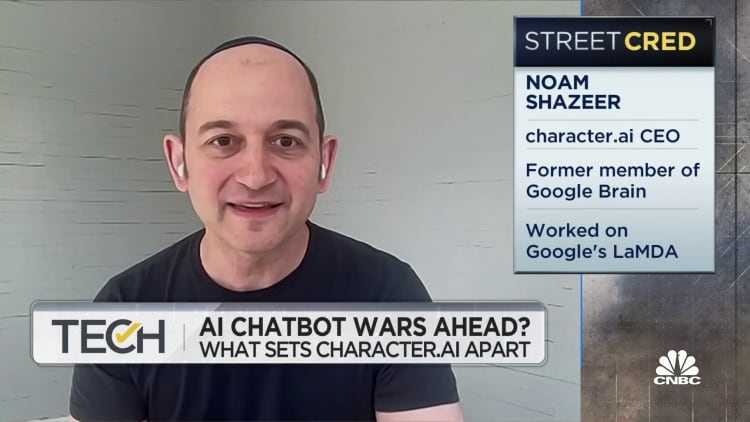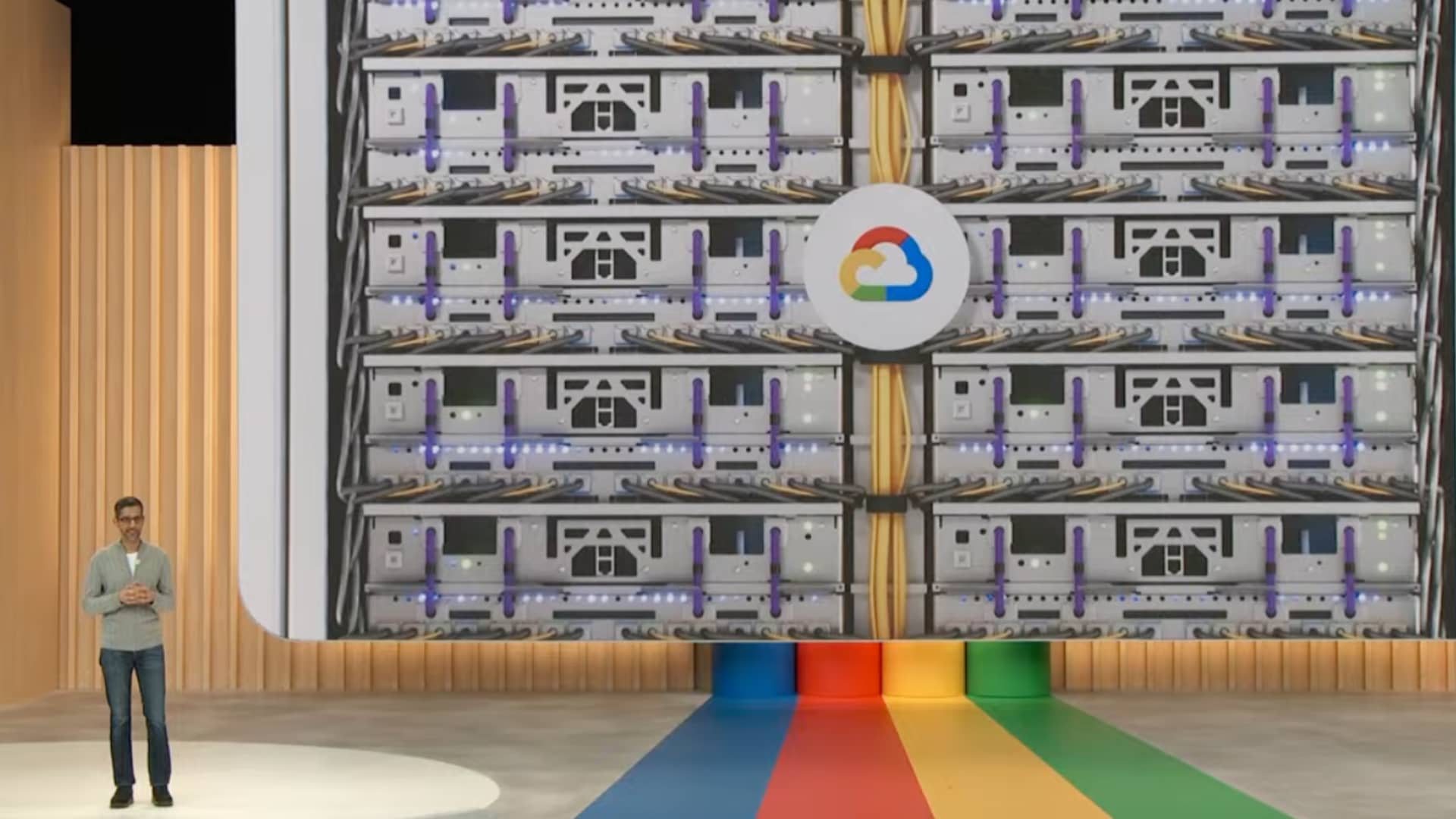[ad_1]
Sundar Pichai speaking at the Google I/O Developer’s Conference in Mountain View, Calif. on May 10, 2023.
Courtesy: Google
Google employees were paying close attention to the company’s annual developer conference this week as well as to Wall Street’s overwhelmingly positive reaction.
When in it came to doling out credit for the 4.3% stock pop that followed Google I/O, many staffers favored the company’s engineers over its executives, according to internal conversations viewed by CNBC.
On Google’s internal site, Memegen, the most popular meme that came from the event showed side-by-side images of parent company Alphabet’s stock price. The slide, which has received thousands of “up-votes,” said on the left, “Execs cost cutting and buying back stock,” over a chart with the stock price going down. On the right, a chart appeared with the stock going up below the words, “Eng[ineers] getting stuff done.”
Many employees agreed with the sentiment in the comments section, praising their colleagues who worked to get the products ready for prime time as part of a companywide effort to compete in AI.
The event came shortly after workers slammed CEO Sundar Pichai for receiving a stock award for 2022 of over $200 million just as the company is slashing jobs and cutting costs. They also criticized the company for authorizing a $70 billion buyback.
A popular meme among Google employees reacting to the company’s successful annual developer conference.
Alphabet’s shares jumped to their highest since August and rallied 11% for the week, after Google announced its new general-use large language model (LLM) called PaLM 2 on Wednesday as well as a number of advancements to the AI technology powering Bard and search, some of which CNBC had previously reported.
Google has been under pressure to showcase its generative AI technology since the public release late last year of Open AI’s ChatGPT. OpenAI backer Microsoft is embedding GPT-powered technology into its Bing search engine and other products, raising concern that Google’s days of dominance in its core search market may be numbered.
After an event in February at which Google promoted its AI chatbot Bard, the company’s stock price sank 7%. Google employees responded by describing Pichai’s announcement as “rushed” and “botched.”
Google has since been speedily working to bring its consumer AI services to market.
‘Take a shot when someone says AI’
Following I/O, employees showed excitement for some of the updates to Bard, especially features geared toward coders, like “dark mode,” which makes the display of Bard dark instead of light and is an option often preferred by engineers. The crowd roared with applause after dark mode was announced.
One meme that received several hundred likes said, “Things I learned from I/O” with the following text: “Google can still impress me.” It continued, “Great job to those who worked so hard” and added, “As someone who expected to make snarky memes the whole time, it was nice to be wowed.”
In another meme, employees praised Dave Burke, vice president of engineering, for his Android 14 presentation and the authenticity he showed on stage, a departure from the canned corporate speak that’s typical at these types of events.
Employees also poked fun at the frequent use of the acronym AI during Wednesday’s two-hour keynote address. One highly popular meme included a cartoon character with the text “I/O 2023 increases GOOG stock price,” followed by, “I just kept saying AI and it kept working.”
Another meme said, “let’s sprinkle some AI/ML on that,” and showed a large pile of powder with the text “Google I/O 2023.”
Other employees chose cultural references. One meme that was created was a play on the “Old MacDonald” song with the alternative words “Sundar Picha-AI said A-I-A-I-I/O.” Another had an image of “That ’70s Show” character Kitty Forman reluctantly pouring alcohol with the text, “Take a shot when someone says AI during I/O.”
A Google spokesperson declined to comment.
Alphabet shares are up 33% this year after losing close to 40% of their value in 2022.
WATCH: Large language models are creating a paradigm shift in computing

[ad_2]






